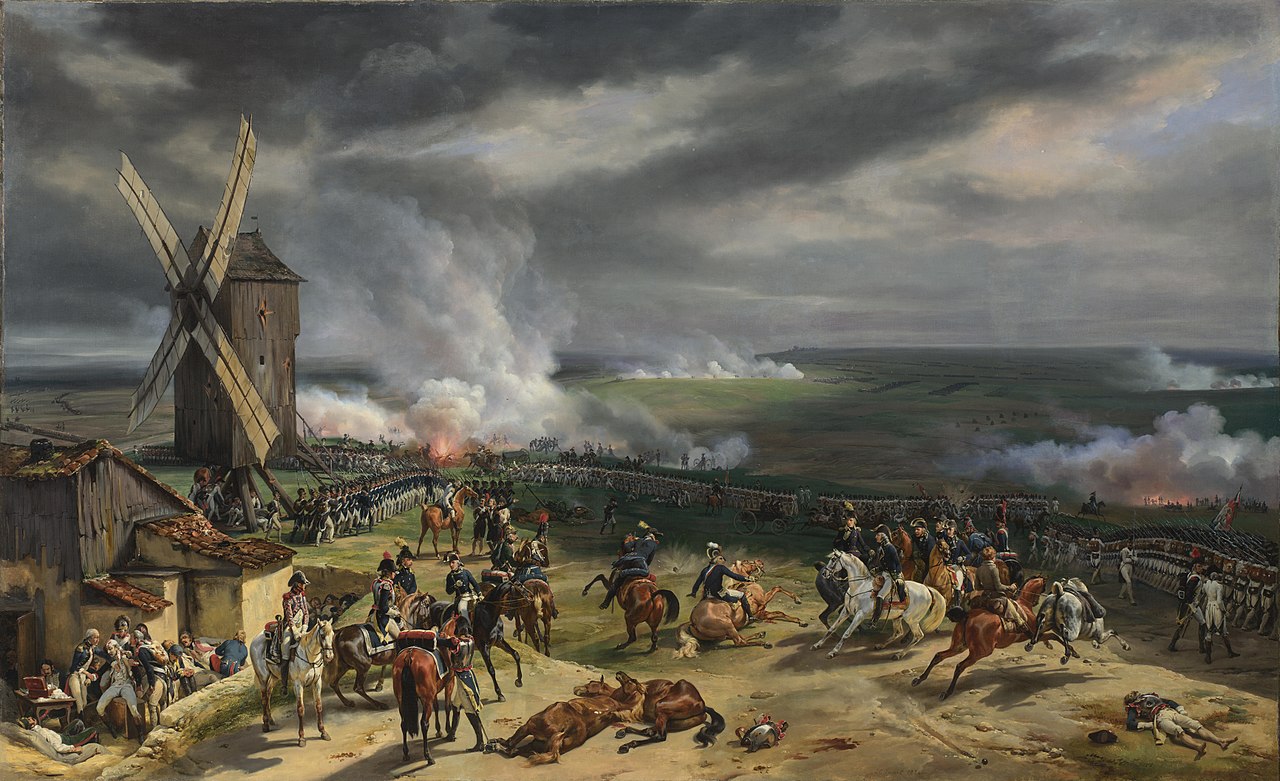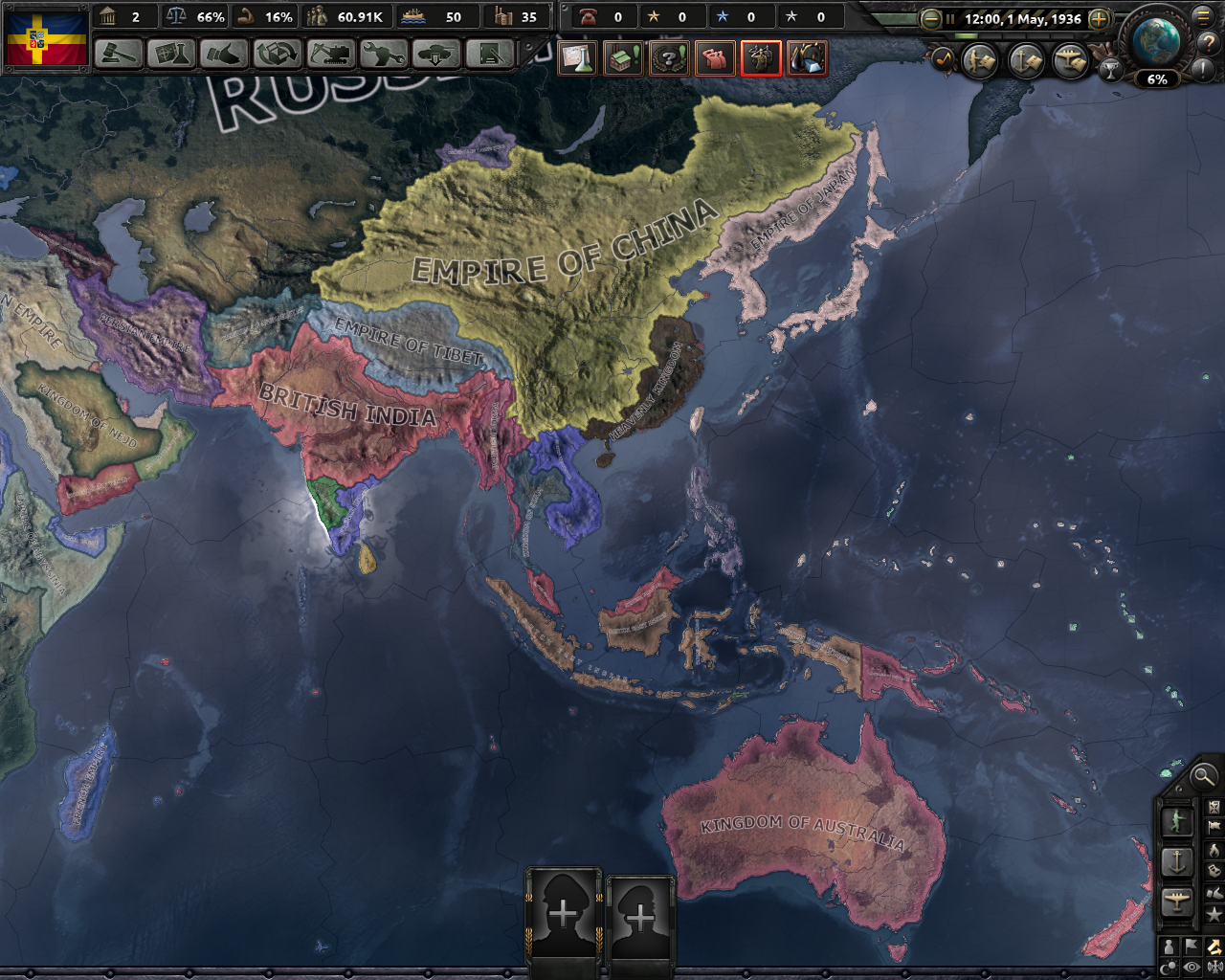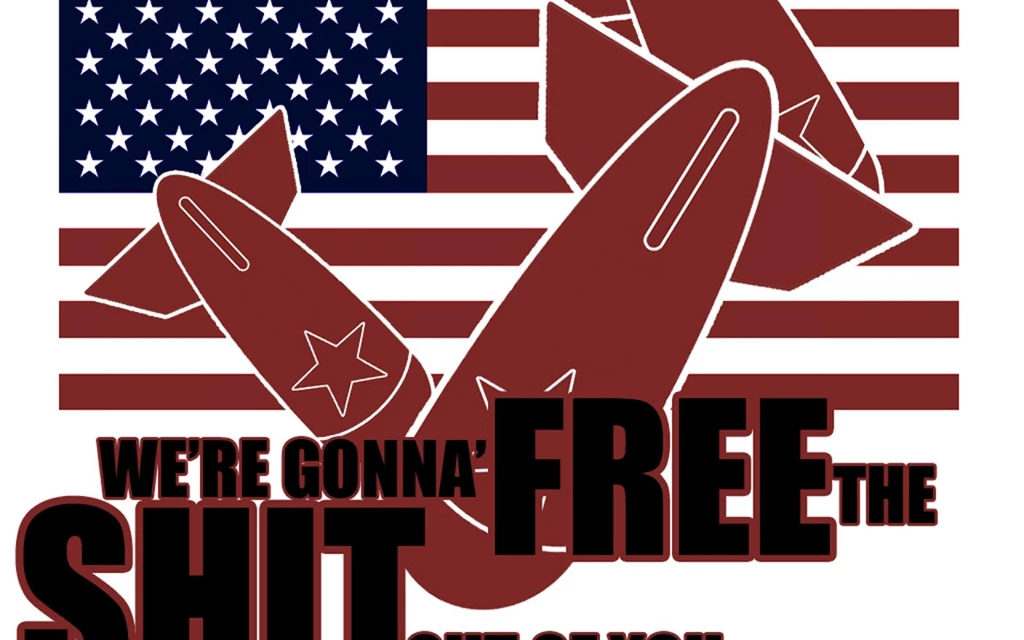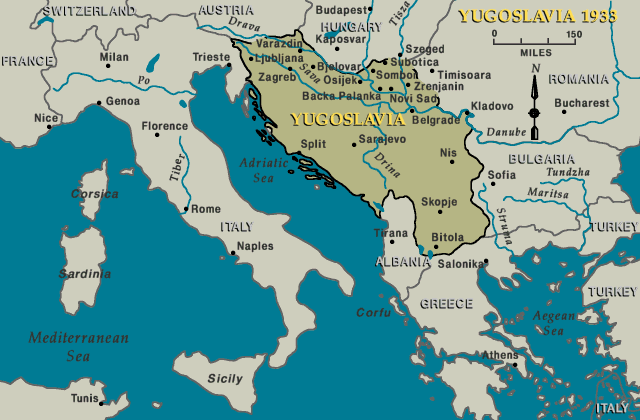Chapter 4: The League of Nations
After the Great War the French Parti de Pais, then a small opposition party in the Assemblée National proposed a plan to help prevent the outbreak of a second Great War. While Napoleon IV liked the idea, the government did not make it a part of the Treaty of Versailles which ended the war. While the exact reasons for this are still debated it is widely assumed the Continental System was expected to last and it's combined power would prevent another war. This was soon proven wrong. Within two years after the war Spain, America and the Ottoman Empire withdrew from the military alliance.*
View attachment 441261
The Spanish government was promised serious territorial gains after victory. Widely assumed this to be the region of Catalonia, long held by France, but historically and culturally considered to be part of Spain, the Spanish population was outraged when they only got Egypt and Ceylon as colonies from Britain. Shortly after signing the peace nationalist anti-French parties rised in popularity, forcing the government to end the alliance with the French Empire or risk revolution.
Egypt being awarded to Spain outraged the Ottomans. The Ottoman Empire had long ruled Egypt, and both the nationalists and islamists within the Empire where furious when this large Muslim country was not awarded to them but to Spain, a new coloniser with neither a historical claim to Egypt nor any cultural relation with it's population. To add insult to injury the French also annexed Lybia into it's own colonial Empire, while it had been taken from the Ottoman Empire by Italy no less then a decade before the outbreak of the Great War. While the reparations by the Central Powers saved the disastrous Ottoman Economy, it's people and government were outraged when the Empire only gained Thrace and Cyprus.
Just kidding
The Americans for their part had replaced Britain as the dominant naval power in the Atlantic, took most of it's African colonies, and kicked them out of mainland Canada. So, in short they had nothing more to gain by protecting the French and their Continental Allies from the revenge of the Central Powers. In fact, instead of remaining neutral America might use another Great War to annex it neigbors or increase it's colonial empire, at the expense of France, Portugal and / or Sweden-Denmark.
Germans killing other Germans to stop the killing of Germans
However, the final nail in the coffin of the Continental System proved to be the German Civil war. After defeating Prussia and Austria on the field of battle Napoleon Bonaparte formed the Confederation of the Rhine to serve as an ally on it's eastern border. This confederation eventually evolved into the Kingdom of Westphalia. Still firmly allied by the time of the Great War, it's King Frederick raised a huge army to fight on the side of the Continental System. As a reward, and to secure stability, Westphalia was awarded most of the other German states, at the expense of Prussia. however, outraged by the loss of an entire generation of young men, and seeing King Frederick as a French puppet, the Northeast of Germany rose up under Field Marshall August von Mackensen, and in the west a Communist State was formed. The three Germanies quickly found each other at war with each other.
French doing what they love most
Fearing the loss of a major ally, the French and Austrians prepared to intervene and restore order to Germany. However, when the order to mobilise was given chaos erupted in France. Fearing the loss of their remaining sons and brothers many French people started to protest. After two days the police was unable to keep order, with many policemen refusing to arrest the protesters, and some even joining the demonstrations. An army regiment was sent in on the fourth day to end the demonstration. Then followed the iconic scene where the (mostly conscripted) soldiers put flowers in their rifles and joined the protestors. Another day later, the trade unions announced a general strike which was to last untill the mobilisation was cancelled and the government declared no Frenchmen would be sent to fight in Germany. Fearing chaos, and possibly the end of his monarchy, Napoleon IV gave in to the demands and his government cancelled the mobilisation.
This chain of events was seen as a weakness by the remaining Central Powers. As the Austrian government debated an intervention without French support the Polish, Hungarian and Italian armies mobilised their armies, which was said to be for practice purposes. Seeing they where surrounded by potential enemies, the Austrian government backed down, and declared neutrality. While the conflict had been limited to Germany, the other members of the Continental System saw that France completely abandoned it's ally Westphalia. The Central Powers however did not intervene themselves. Mussolini was still consolidating his reign over Italy, Poland did not yet have an army large enough and Horthy feared a far away campaing would make him unpopular and vulnerable to a Royalist coup. So the Germans ended fighting each other while the rest of Europe sat and watched. However, it became clear to the world France was not going to play the part of Europe's policeman and the Continental System was now dead, leaving it's former Balkan allies to fend for themselves.

Realising it's inability to maintain the status quo through force, and under heavy critisism from the Nationalist opposition, in January 1936 Emperor Napoleon IV adopted the before Versailles aborted idea of setting up a League of Nations. This body would maintain permanent multilateral relations between the Great Powers and minor nations of the world. The purpose of this was to prevent the outbreak of future wars and, should this fail, the minimising of human suffering. The French did not design the structure of this organisation, as they did not want to be seen as agressive superpower shoving it down other's throats. Instead, it was decided that the organisation and the exact goals of this organisation would be decided at a great summit. This great summit was to take place in neutral Zwitserland in october of the year 1936. All nations currently recognised were to be invited. This course of action provided the French organisation with three problems. The first of all, should Germany be invited? Inviting one of the three fighting parties would inevitably mean alienating the three others, and nations sympathising to them. So, the French decided to invite all three of the parties involved to the summit provided they would sign a ceasefire beforehand. The second problem was the French Mandate of Pommerania. Pommerania was the remnant of the once great nation of Prussia, which had been claimed by Poland before th Great War. After the Great War it was decided a plebescite would be held if Pommerania would become part of Germany, Poland or become independent alltogether (with the French betting on this option). As Germany quickly collapsed into chaos the mandate was extended untill the current date. Inviting Pommerania would increase it's status as a nation, but might alienate Poland. Thirdly, would the French invite semi-independent states? Doing so would mean more votes for the French through their colonies, but might fuel independence movements. The French decided to invite both Pommerania and all semi-independent nations which maintained their own foreign relations. **

A free meal might increase the turnup
So the French government sent out it's invitations. To their relief the majority of nations accepted the invitation. Present would be:
- France (2 votes)
- Luxembourg
- Sweden-Denmark (2 votes)
- England (2 votes)
- Ireland
- Spain (2 votes)
- Portugal
- Zwitserland
- Italy (2 votes)
- Pommerania
- Austria (2 votes)
- Hungary
- Croatia
- Serbia
- Albania
- Romania
- Bulgaria
- Greece
- The Ottoman Empire (2 votes)
- Ukraine
- Belorussia
- Russia (2 votes)
- Finland
- The Caucasus Republic
- South Africa
- Abyssinia
- Nejd
- Kuwait
- Qatar
- Abu Dhabi
- Yemen
- Persia
- Afghanistan
- British India
- Portuguese India
- French India
- British Birma
- Siam
- French Indochina
- The Philippines
- The Dutch East Indies
- Australia
- New Zealand
- Japan (2 votes)
- Heavenly Kingdom
- America (2 votes)
- Quebec
- Algonquin
- Mexico
- Chan Santa Cruz
- United Republic of Central America
- Gran Colombia
- Brazil
- La Plata
The invitation was politely (or impolitely) declined by:
- The Netherlands
- Poland
- The Baltic Republic
- Liberia
- Oman
- Tibet
- British Malaya
- China
- Louisiana
- Deseret
While most nations of the world, particulary in Europe seemed to embrace this idea, there were some absent nations, be it for completely different reasons. The Netherlands still strictly followed it's neutral policy, and feared the League of Nations would develop into a military alliance which would suck the nation into a next war rather then protect it from it. Poland was outraged at the invitation of Pommerania, an official statement claimed: "We will never sit down with French agressors occupying Polish soil pretending to be some fake made up country". The Baltic Republic declined claiming this League of Nations was just another bourgeous instrument to oppress the workers of the world, and declined to attend untill all colonies were granted independence. Liberia was not allowed by America to attend as the Americans feared this would give Liberia the idea of equality with it's American protector. British Malaya did not attend because it's governor had some issues with the government in London. China refused to sit down with the Japanese untill they ended their occupation of mainland China, Korea and Taiwan. Louisiana still did not recognise the Bonaparte dynasty as rulers of France. Oman, Tibet and Deseret all claimed their government's authority was handed to them directly by their different Gods, and no man had the right to limit their divine right to rule their part of the world as they saw fit.
:max_bytes(150000):strip_icc()/LeagueofNationsConference-59dc029dd088c00010323c8b.jpg)
It can't be that hard the get them to agree right? After all, they all agreed to dress alike
And so, the conference began. In his opening speech president Albert Meyer of Zwitserland welcomed the delegates and explained the procedures; first of all every nation would be allowed to propose motions. These would later be debated on, and in the end a majority vote would decide the outcome. First of all, being the one to have taken the initiative, French Emperor Napoleon IV would give the opening speech:
"Dear friends from all around the world. A few decades ago disaster ripped apart our dear civilisation. War raged throughtout Europe, the Americas and Africa. Many millions of men lost their lives in this terrible conflict. Today we are here together as a family of nations to prevent such a disaster from ever happening again. We must make sure we can live together in friendship and harmony from now on into our great futuere. Therefore, on behalf of the nation of France I bring before you these six proposals:
- The formation of an international court of justice to mediate between nations, and thus prevent the outbreak of war in the future.
- An agreement for the humane treatment of prisoners of war.
- The prohibition of poison gasses in war.
- The creation of an International Relief Union which will help nations in times of disaster.
- The creation of an Economic Assistance Program to increase trade among the nations of the world.
- A Maritime Convention, in which we agree on merchant ships will be warned when attacked, so that sailors have the time to board lifeboats and attacks on hospital ships will now be prohibited.
After an enthousiastic, or not so much enthousiastic applause, several other speakers gave out niceties and their opinion on the proposals, another proposal shocked the assembled delegates. The Japanese ambassador proposed the League of Nations should work on the bass that all Human races where equal. This met fierce opposition from America and Britain, with the French Emperor eventually proposing that the League of Nations limit itself to the relationship between nations, not between individual people. This led the Abyssinian delegation to walk out as they refused to be seen as inferior. Still, the Japanese had made their point, which they would often use in their propaganda against the colonisation of Asia. Yet this would soon be overshadowed as another speaker had some things to say.
/Mussolini-56a48bf45f9b58b7d0d77f8f.jpg)
As Benito Mussolini entered the stage, looking not very happy, the audience fell silent. The prime minister of Italy began: "We are invited here unter the pretext of friendship. To preserve the peace. Tell me Emperor Napoleon, where is the peace in Germany? Tell me Emperor Napoleon, where is your good friend King Frederick? What have you done to keep the peace in Germany? After using his men as cannon fodder in the Great War, what did you give him in return when the Communists came for his head? The talk of peace we have here is nothing but talk as long as there is no force to back it up. And tell me Emperor Napoleon, how do you expect us to give you our friendship when you still occupy Piedmont, which has been Italian through and through since the days of Ceasar. Why do you not only rob your defeated enemies, but also your allies? Why do you still occupy Catalonia which rightfully belongs to Spain? Why does your precious "Liberté, egalité et Fraternité" not extend to the Africans, Indians and Asians living in your colonies? Well, is this whole League of Nations anything more then you trying to keep your stolen Empire you don't have the balls to fight for yourself?"
Following Mussolini other leaders of the defeated Central Powers began to stake their claims to Slovakia (Hungary), Montenegro (Serbia), Dubrudja (Bulgaria) and Epiros (Greece). However this was nothing compared to the Russian tsar Alexander who declared Russia most be restored to it's pre-Napoleonic borders, basically declaring he wanted to annex the Baltics, Belorussia, Ukraine and the Caucaus Republic. Despite all the claims made a coherant proposal mas not made by the former Central Powers, so no motions hade to be voted upon, but the positive atmosphere was gone. Instead a Brazilian journalist would later describe the meeting as "a verbal continuation of the Great War".
Despite the bad athmosphere the asembled nations still had to vote on the proposals made by Napoleon. On behalf of Sweden-Denmark Vilhelm Buhl voted in favor of all six proposals. The results were as follows:
- The international court of justice was accepted, be it with a small margin. It was agreed that when two nations had a dispute a five nation council would be formed. Each of the disputing nations appointed two other nations, with the fifth being agreed upon by both (or if they couldn't even agree on this, by the four nations already appointed). This council would issue a binding resolution. However, to be binding, the council had to be unanimous. If they couldn't all agree the majority would make a draft resolution, upon which a vote would be held by the general assembly of the League of Nations which would then approve or refuse the resolution. This resolution was accepted with the support of all nine American nations and the five Arab states present who feared involvement in another European war, therefore it was explicitly stated no nation would be obliged to provide armed forces to enforce the resolution.
- The resolution on prisoners of war was rejected, with most nations arguing it would be rediculous to provide comfortable treatment to prisoners if their own populations starved. Behind the screens Miklos Horthy for example was heard saying "Maybe the French and Austrian dogs surrender on the first opportunity, but the Hungarian soldier stands his ground".
- The ban on chemical weapons was accepted unanimously as all nations believed these weapons to be to horrible. Unfortunately the nations could not agree on punishment in case chemical weapons were used anaway.
- The relief union was rejected as to many nations did not want a part of their fleet to be under international supervision.
- The Economic Assistance program was accepted, but was in practice mostly limited to voluntarily decrease of trade barriers.
- The maritime convention was accepted as many nations did not see the harm in sparing the lives of sailors. However, no penalty was formulated for breaking this rule.
It was agreed all nations would leave a permanent ambassador in Genéva for regular diplomacy and five years from now another summit would be held to review the way the League of Nations was working.
Without a doubt the hotels and restaurants of Genéva were the big winners of the convention
* Aside from the German civil war nothing in this chapter is official lore (which is quite limited as far as I know), I made it up as a backstory to this AAR.
** In-game the various votes are made during a year-long period as the various proposals are made by French national focuses, I wrote it into a single convention to better suit the narrative of the story.










































:max_bytes(150000):strip_icc()/LeagueofNationsConference-59dc029dd088c00010323c8b.jpg)
/Mussolini-56a48bf45f9b58b7d0d77f8f.jpg)



































